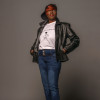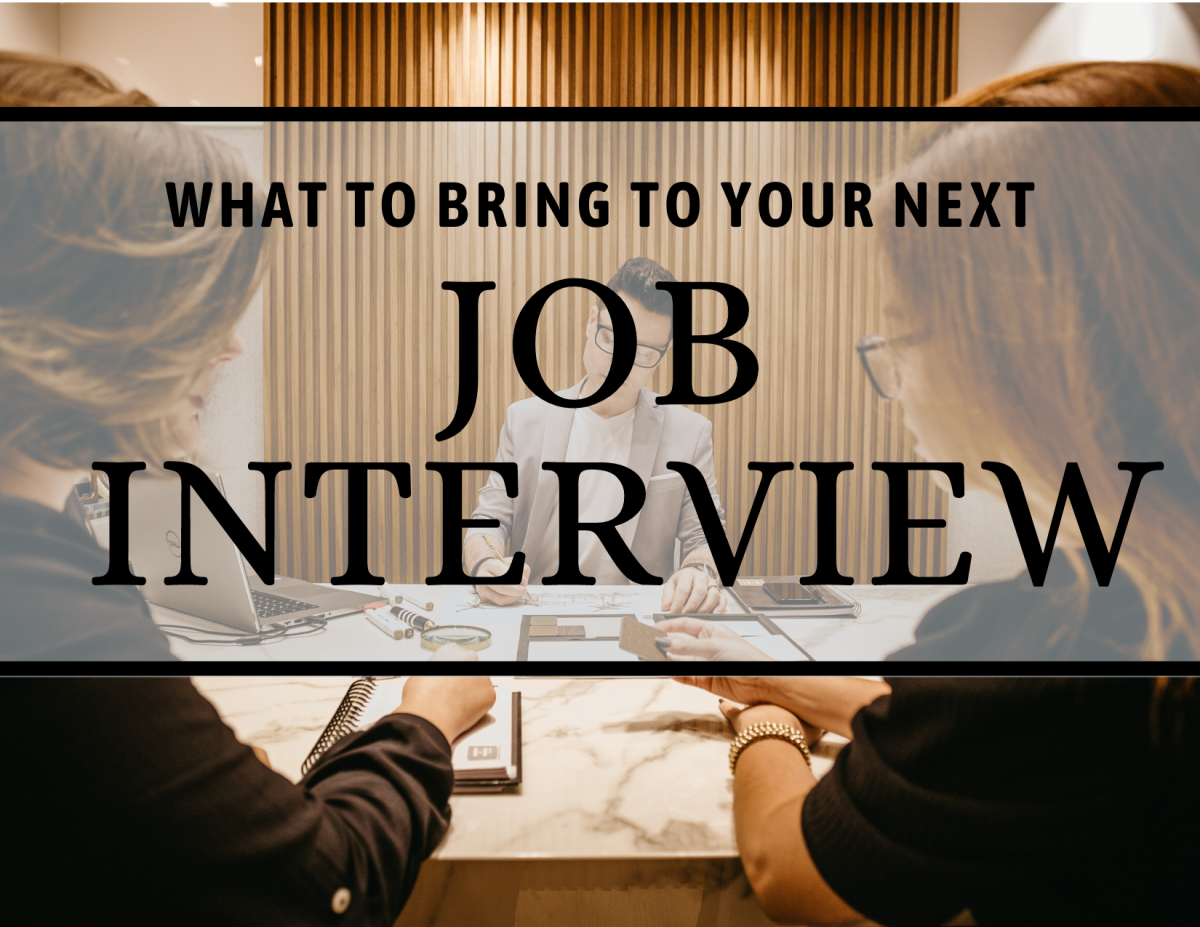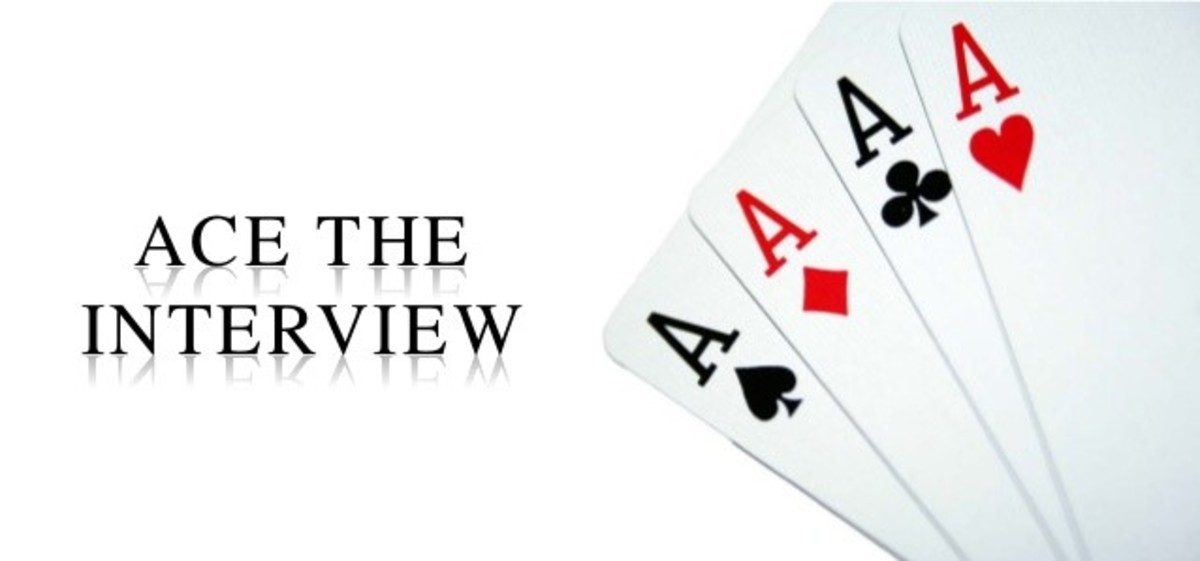The Interview
The Art of Interviewing
Preparing for the Interview
Once you get the call for the interview, the next thing that you have to do is prepare for it. You can never over prepare for an interview. The more prepared you are, the harder it will be to make mistakes. It is best to prepare yourself emotionally as well as intellectually for an interview. Giving a great interview is not as hard as some may think, but not as easy as others do either. Here are a few things that must be done in order to prepare for your next interview.
Remember, during an interview, you are a salesman. You are there to sell yourself to your prospective employer. You want to market yourself in the most interesting way possible. Great preparation for the interview is your best bet. A salesman that is knowledgeable, friendly and positive always gets the close.
Do Your Research
It doesn't matter how much knowledge or experience you have about the position that you are trying to get in a company if you don't have a clue who the company is or what they do. It is disastrous to enter into an interview and not be able to tell your interviewer what their company is about. How else are you going to tell them why you feel that you would be a good addition to their company?
A good and less time consuming way to get to know about a company is to look up their website. You can get all of the general knowledge about them that way, including the names of key people and their job titles. (There will be more on that in a minute) You should sift through most of their pages, including the pages that show samples of their work and/or products.
You can also look them up in the media files if there are any. Read the articles about them and soak in as much information as possible. Another thing that would be nice to do is to check out the surrounding area around the company. It makes for a nice breaker during the interview. You can make a comment about a particular monument or resting place nearby.
A trickier way to get a little extra information about the company is to call them on the phone and ask general questions, without referring to yourself as a potential employee. It's a nice way to get the goods on upcoming promotions etc.
Know Your Contact
When called for an interview, ask to whom you will be talking to. It is nice to be able to greet your interviewer by name at the beginning of the interview without first being told who they are. It shows that you are on top of things, and have prepared before hand.
You will also want to do some research on the person that will be conducting your interview. Learn what they do for the company and try to get some samples of their work or achievements in the company.
If you know what department that you are going to work in you may want to get the names of your potential colleagues and superiors prior to the interview as well. This way you can get some information about their roles in the company and the types of work that they have done. Mention some of the things that you learn about your potential colleagues in the interview and about how much you look forward to working with them in the future. If you can, give an example of their work so that you will appear more sincere.
Practice Your Responses
It is best, if you are prone to nervousness, to practice giving your responses to the questions that may be asked of you. (A list of the most common questions will appear later on in the manual) You should practice your wording and the tone of voice that you plan to use; Try keeping your responses as brief as possible, but with as much detail as you can.
When you are trying to work out the proper responses to the interviewer's questions, you will also want to practice the art of getting your nerves under control as well as ridding yourself of any other odd habits while talking; like expressing yourself with your hands. Practice answering your interview questions with a friend. Get his or her opinion about your delivery and gestures. Perhaps your friend will have some nice insights for you to use during the real interview.
Dress the Part
Pre-select your attire the day before your interview. You want to make sure that your clothes do not have any wrinkles or stains on them. Pick an outfit that best suits the type of job that you are applying for. If you are going to work in an office setting, you should dress conservatively. Soft earth tones are best for women. Try to avoid mini skirts and shirts that show too much skin. A nice dark suit is good for a male.
Of course if you are planning to work outdoors or in an artistic environment, you can dress a little more casually. Just be certain to avoid wearing denim jeans, over sized clothing, and under sized clothing. Women should try and avoid wearing too much make-up as well. It gives the wrong impression.
Even in the hotter seasons, you should not wear sandals or gym shoes to an interview. It sends an unprofessional message. The same goes for hats and other accessories.
Get Organized
Make sure that all of the things that you will need for the interview are prepared the day before. Make a checklist of the things that you will need if you have to. You should always have an extra resume handy during the interview. You should also bring with you a note pad to take notes during the interview if needed. (Only write down the important things that you think you will need to remember)If you have a business card, have one handy, it makes for easy contact later, and it also shows that you are professional and may help the employer to remember your name.
How To Act
How Should I Act?
There are many things that you can do that can take some of the pressure off during an interview. The way that you behave is one of the most important. It's not all in the words that come out of your mouth, but often has a lot to do with the mannerisms that you use.
Interviewers are not just wondering if you are skilled enough for the job, they are often wondering if you would fit in nicely with you co-workers. Your personality is a big part of your interview and can make all the difference. Here are some of the little things that you should pay particularly close attention to during an interview.
You do not want to be chewing gum or breath mints during your interview. You also don't want to speak in slang during your interview either. It is unprofessional and rude.
Show Confidence
You cannot enter into an interview with a defeatist attitude. You cannot mope or exude too much placidity in your manner. It is not inviting, and does not give the impression of a person that you want to face every day. Be sure of your abilities without appearing cocky or narcissistic. You want to let you interviewer know that you are equipped to perform well at your job, without alienating other workers. You should point out your accomplishments in your field while remaining somewhat humble. List your accomplishments in a matter of fact way without going into too much detail. I know this sounds repetitive, but you can never get this point too strongly. Understand that body language plays a large part in exuding confidence to others. Sit straight. Practice good posture, and keep your head up.
Keep a Positive Attitude
You should always try to smile and keep a positive outlook during your interview. If what you are hearing something that doesn't sound good to you, don't frown and look disgruntled, just keep a slight smile on your face until it is time for you to say something. Then approach your interviewer with your questions or concerns when the time is appropriate.
Maintain Eye Contact
Keeping eye contact with your interviewer is very important, especially when one of you is speaking to the other. If you are looking around the room or at the items on the interviewer's desk, you will appear uninterested. Just imagine what you would be thinking if you were speaking to him and he was looking all over the room. You would probably think that you already lost the interview.
Body Language
We've touched on this a little bit but you should mind some of the common errors that many people make when they are speaking to others. I've listed some of the common things that you should avoid when sitting through an interview.
Avoid fidgeting while speaking to your interviewer. It shows a lack of self confidence.
Avoid speaking while using overly expressive hand gestures. It is distracting.
Avoid biting your lips in between sentences. It gives the impression that you are making things up.
Do not sit with your arms crossed because it makes you appear stand-offish.
Do not shrug your shoulders when asked a question that you are unsure of. Take a second to think of your response. Shrugging your shoulders gives the impression that you don't know the answer.
Don't answer with nods and head shakes. Use your words to answer questions.
Get plenty of sleep the night before the interview. You don't want to yawn in front of the interviewer. He will think that you are expressing boredom.
Your First Impression
First impressions can be a hard thing to get past in any situation. During an interview you want to give the best first impression that you can. There are many small things that you can do to assure that you give the best impression possible. They are as follows:
You can never be too polite to the person that directs to your waiting area when waiting to be interviewed. A small gesture like, asking how they are doing can work wonders for you when you leave the building later.
While waiting to be interviewed, sit properly and behave as if everyone passing you by is your potential interviewer. (They just might be) Smile at people as much as possible. Do not act impatient or bored, it sends the wrong message. Some interviewers will keep you waiting just to see how you handle yourself.
Greet you interviewer with a firm handshake and a smile.
Remain standing until your interviewer asks you to be seated. It is simply polite and shows proper etiquette.
Again, dress according to the type of job that you are applying for.
Show yourself to be well organized, by having all things needed for the interview.
While waiting do not eat or drink anything.
Finally, don't chat on your cell phone while waiting for your interviewer. It makes you look distracted.
Being Prepared
- How to Prepare for an Interview - Doing Company Rese...
The foundation for successfully preparing for an interview is to research the organization you are seeking employment with. It can be argued that you should perform this research prior to trying to secure... - How to Prepare for an Interview
In order to prepare for an interview, first prepare an interviewing portfolio that includes in it the following documents: Several copies of your updated resume A copy of the job description and/or...



